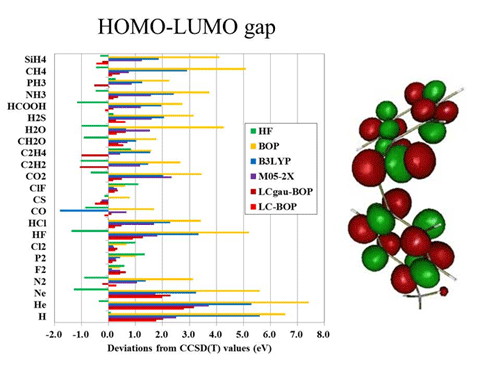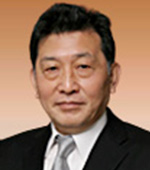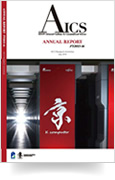

Computational Chemistry Research Unit (until March 31st, 2016)
Density functional theory (DFT) is one of the most widely used quantum chemical methods, and it enables us to obtain reasonable chemical properties with an effectively short computational time. However, DFT has several problems to be solved even for ground state calculations. Conventional DFT cannot describe the potential energy curves (transition states), weak van der Waals (vdW) interations and Rydberg and charge transfer (CT) excited states. The failure arises from the wrong long-range behavior due to the local character of the approximate functional. Recently we have developed new functionals based on the long-range correction (LC) scheme. The exchange functional is partitioned with respect to the interelectronic separation into long-range and short-range parts using a standard error function. LC solved many of the DFT problems. The underestimation of Rydberg, the poor reproduction of CT excitations in TD-DFT calculations, and the overestimation of linear and nonlinear polarizabilities of long-chain molecules in LC-DFT calculations are improved. Moreover, the LC successfully provided a good description of vdW interactions as well as accurate reaction enthalpies and barrier heights. Recently it was demonstrated LC-DFT satisfies the Koopmans' theorem. Computational Chemistry Research Unit will extend LC-DFT and do the control of the chemical reactions and molecular design theoretically. We will also apply LC-DFT to real-size biochemical systems and nanomaterials using parallelizing and linear-scaling techniques.


Research Unit Leader
Kimihiko HIRAO


